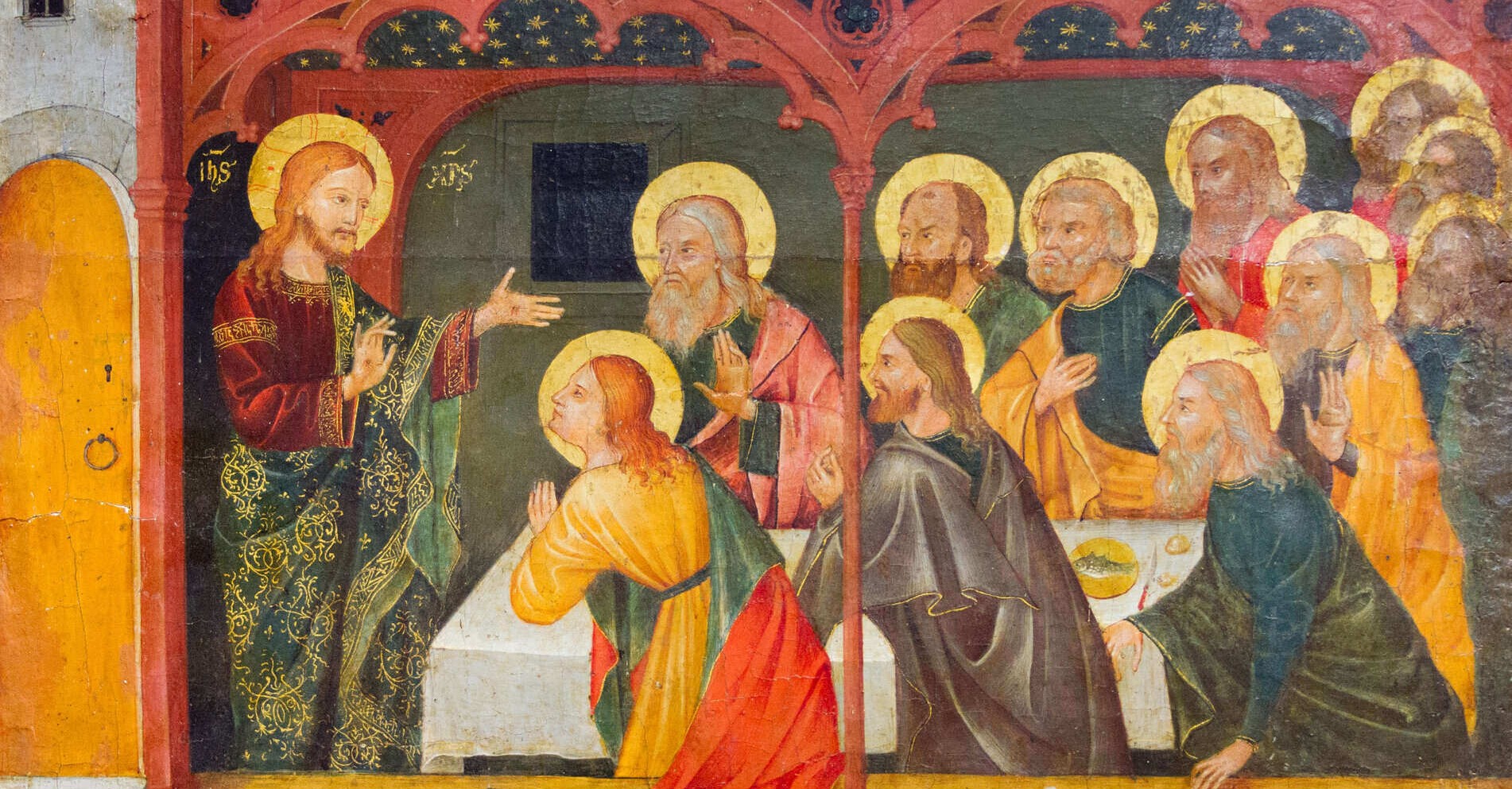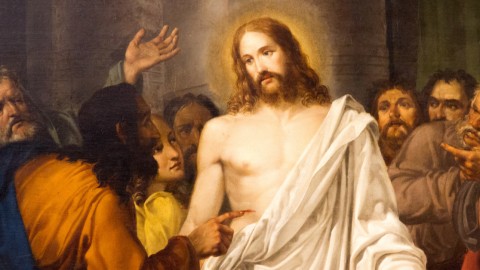Advent II, 5 December 2021
“I don’t need a church to tell me I am wrong where I already know I am wrong; I need a church to tell me I am wrong when I think I am right.”[1]
At times we think we’re right, and yet we’re wrong and need the Church to remind us and guide us to the truth, which is Jesus Christ. Most people know when they’re doing wrong, especially if their hearts are open to God, and the Church is not to bring condemnation. But when we think we don’t need God, that’s when we need Him the most. When we don’t want to give, that’s when we need to give. When we feel we don’t want to worship God on Sunday, that’s when we need to rise and go to worship Him: that’s when we need Him the most.
Often in the modern world, God is pushed to the periphery amid human activity, including the “Christmas” frenzy, but it’s time to put Him back in the very centre of our lives. The voice of John the Baptist resonates: “A voice calling in the wilderness: Prepare ye the way of the Lord; make straight the way”… for the salvation of God draws near.
John the Baptist can be perceived as a prelude, an introduction to something more important: his life was a preparation for the coming of salvation. His appearance was at the perfect time – a time of great expectation when God’s intervention in creation was desperately needed. You and I cannot imagine the time in Israel when John appeared.

Putting God back at the centre
Our modern minds are congested and noisy; it’s easy to think the Church and the Sacraments compete for our attention with the “other world” of daily life. Sometimes on Sundays we struggle to go to church because we’re tired or have many things to do. Saint Anselm said:
“Escape from everyday business for a short while. Hide for a moment from your restless thoughts… Make a little time for God and rest a while in Him.”[2]
In the midst of the busyness of life, God always draws us to Himself. God’s people are taught to seek and love God with all our heart, because the heart is central; it’s the dwelling-place where we are and where we live, the very centre of our humanity. We’re not so much a body with a spirit as a spirit with a body. According to Scripture, it’s the heart of praise, our hidden centre, where we encounter God.
If we’re honest, many struggle every Sunday; otherwise, the evil one is a secretary who will keep us away from the Sacraments – he’ll make sure your Sunday is occupied from the moment you wake up until you lay your head to rest, because he doesn’t want you to approach the Holy One. The reason for the Sacraments is that all human life is sacred. Even during Mass, we struggle with coldness of heart and wanderings of mind: it’s easy to be occupied with what will happen next, and to want to finish quickly so we can do our thing.
But the Eucharist and our encounter with God are our central activity. That’s why we have Sunday as our day of worship: it’s God’s day, our time with God. There will never be an iPhone or Samsung that will give you the Sacrament. Our hearts compel us to love God in worship by gathering as a community and going to the Table. We must consider that Sunday is not our day, but God’s day. The life we receive on Sunday flows through the week until we meet Him again in a very special way.
How can we regain a meaningful, life-giving encounter with Christ in the Eucharist? How can we repel such lethargic tendencies and regain inner joy in encountering Christ in the Sacrament or beholding Christ in His nativity? I’d like to share with you from a book of reflections on the writings of Fr. Bruno Lanteri; I pray we’ll be able to regain that spiritual oasis that we find when we receive the Eucharist.
Going to the temple with Simeon
Luke 2:25-32 tells the story of the Song of Simeon (Nunc Dimittis). The Holy Spirit told Simeon he wouldn’t die until he’d seen God’s salvation. For a devout Jew, that meant a lot; the Old Testament is filled with prophecies and promises of the coming Messiah. The promise Simeon received from the Holy Spirit became a reality; one day in the temple he was able to take in his arms the incarnate God.
“Simeon rises and begins his day as usual… He prays, eats his morning meal, and sets about his day. But this particular day is something very special: there seems to be something different about this day.
“For so long, he has asked the Lord that, before he dies, he may see the Christ. Years have passed and his desire has grown. But his prayer has not been answered…
“The hours pass, and suddenly Simon knows that the time has come. Without delay, he prepares, leaves the house, and begins to walk. One street, then another – his slow, steady pace directs him unerringly to the Temple. The light of the Holy Spirit fills his heart, leads him, guides him on his path, and Simeon follows unwaveringly. His heart thrills as each step hastens his encounter with the Christ of the Lord.
“Now the Temple lies before Him. Simeon approaches, enters… and he sees. He takes the Child in his arms. The lifelong hunger of his heart is satisfied. Joy and gratitude fill his spirit. He blesses God and says, ‘Now, Master, You may let Your servant go in peace, for my eyes have seen Your salvation’.” [3]
This is how you can make the most out of worship. If worship has become only a religious duty, if you want it to finish quickly because you have other things to do, how we can we counteract that kind of thought and sensation and make the most of our time in the Eucharist? In the story of the Good Samaritan, the Levite and the priest asked, “What happens to me if I help?” But really the question is, “If I don’t help, what happens to me?” What do we lose if we take Sunday for ourselves, for leisure and pleasure, instead of meeting God in the Eucharist?
“Pause now for a moment and accompany Simeon…”
…on his way to the temple – in your heart and imagination, as if you were Simeon:
“Remember with him the many years of desire, the long-delayed fulfilment, the never-failing hope. Feel with him the thrill of awareness that today is the day. Open your heart, like his, to receive the Spirit’s prompting. Walk with him through the streets. Draw near with him to the Temple. Enter the Temple with him. Feel with him the longing, the hope, the joy and the love of the encounter that will now take place.”[4]
As you come to church and we gather together every Sunday, make every step count. Make it a time of preparation, as if you and I were with Jesus and the Holy Family going to Jerusalem three times a year on pilgrimage. Every Sunday when you wake up, say, “I am meeting God in the Sacrament today”. Let your heart be prepared; lay aside everything else for this moment. Only then can our encounter with God every Sunday become a life-transforming event.
Life this side of heaven has its beginning and end, which we cannot control. Moses said that after everything is said and done, we’ll look at our lives and say, “What can we really be proud of, but labour and sorrow?”[5] But not for Simeon – his life on earth became so meaningful. If we’ll listen carefully, beyond labour and sorrow, life on earth is a time to see, know and love God, and to taste and see that the Lord is good. And that’s when we practice every Sunday, or even every day: that when we wake up in the morning, we would say, “Lord, may this day be sanctified for You; may everything I do and say glorify You. When I lay my head to rest, I pray that I may have seen You and that I may not have missed Your visitation”. Ultimately we’ll see God’s salvation. Moses said to God, “Show me Your face”, and He said, “No one can see God and live”; but Simeon was blessed to hold the Son of God in his arms. If our heart is seeking and filled with love of God, is it possible to see His salvation? Yes: if it’s possible for Simeon, it’s possible for us.
[1] attributed to G. K. Chesterton
[2] Saint Anselm, Proslogion, chapter 1
[3] Fr. Timothy M. Gallagher, O.M.V., A Biblical Way of Praying the Mass: the Eucharistic Wisdom of Venerable Bruce Lanteri (Irondale, Alabama: EWTN Publishing, Inc., 2020)
[4] see note 2
[5] Psalm 90:9-10









